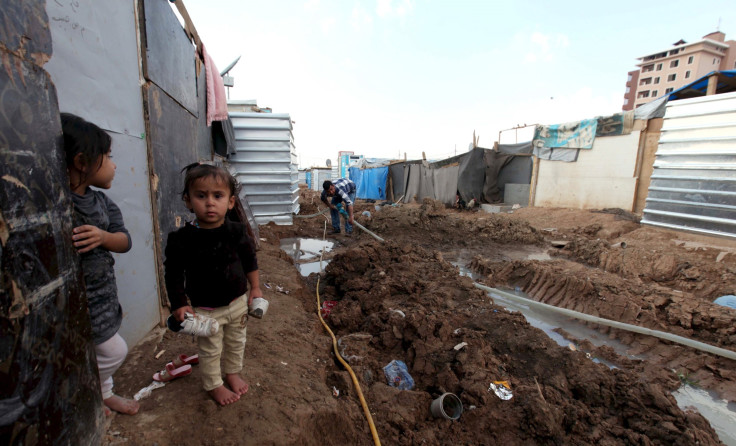Turkish Soldiers Training Iraqi Troops Near Mosul: Report

By Humeyra Pamuk and Orhan Coskun
ISTANBUL/ANKARA, Turkey (Reuters) -- Several hundred Turkish soldiers have been deployed to provide training for Iraqi troops in an area near the northern Iraqi city of Mosul, which is under Islamic State control, a Turkish security source told Reuters on Friday.
Islamic State militants overran Mosul, a city of more than one million people, in June 2014, but a much anticipated counter-offensive by Iraqi forces has been repeatedly postponed because they are involved in fighting elsewhere.
"Turkish soldiers have reached the Mosul Bashiqa region. They are there as part of routine training exercises. One battalion has crossed into the region," the source said, declining to say exactly how many soldiers had been deployed.
He said troops had already been in Iraqi Kurdistan and had moved to Mosul accompanied by armored vehicles, in a move which coalition countries targeting Islamic State were aware of.
Video released on the website of Turkey's pro-government Yeni Safak newspaper showed flatbed trucks carrying armored vehicles along a road at night, describing them as a convoy accompanying the Turkish troops to Bashiqa.
A statement from the Iraqi prime minister's media office confirmed that Turkish troops numbering "around one armed battalion with a number of tanks and cannons" had entered its territory near Mosul without request or permission from Baghdad authorities. It called on the forces to leave immediately.
In a separate statement flashed on state TV, the Iraqi foreign ministry called the Turkish activity "an incursion" and rejected any military operation that was not coordinated with the federal government.
A senior Kurdish military officer based on the Bashiqa front line, north of Mosul, said additional Turkish trainers had arrived at a camp in the area overnight on Thursday escorted by a Turkish protection force.
He said he was not aware of the size of the force and refused to speculate.
The camp is used by a force called Hashid Watani (national mobilization), which is made up of mainly Sunni Arab former Iraqi police and volunteers from Mosul.
It was formed by former governor Atheel al-Nujaifi, who is close to Turkey. There was already a small number of Turkish trainers there before this latest deployment
"Our soldiers are already in Iraq. A battalion of soldiers has gone there. Training was already being given in that region for the last two to three years. This is a part of that training," one senior Turkish official said.
In Washington, two U.S. defense officials said on Friday that the United States was aware of Turkey's deployment of hundreds of Turkish soldiers to northern Iraq but that the move is not part of the U.S.-led coalition's activities.
PESHMERGA
Another senior Turkish official said the soldiers in the region were there to train Kurdish Peshmerga fighters.
Turkey has close relations with the Kurdish autonomous zone of northern Iraq, though it views Syrian Kurdish groups across the border as hostile to its interests.
"This is part of the fight against Daesh (Islamic State)," he said, adding that there were around 20 armored vehicles accompanying them as protection.
Islamic State occupies swathes of Iraq and Syria, profiting from disunity among groups opposing it.
On Tuesday, the United States said it was deploying a new force of special operations troops to Iraq to conduct raids against Islamic State there and in neighboring Syria, ratcheting up its campaign against the group.
Iraqi Prime Minister Haider al-Abadi's office has said it welcomed foreign assistance but Iraq's government would need to approve any deployment of special operations forces anywhere in Iraq.
Abadi reiterated that foreign ground combat troops were not needed in Iraq. Powerful Iraqi Shi'ite Muslim armed groups have pledged to fight any deployment of U.S. forces to the country. It was unclear how they viewed the presence of Turkish soldiers.
(Additional reporting by Isabel Coles in Erbil, Stephen Kalin in Baghdad, Ahmed Tolba in Cairo and Phil Stewart in Washington; Writing by Daren Butler; Editing by Ralph Boultonand James Dalgleish)
© Copyright Thomson Reuters 2024. All rights reserved.





















